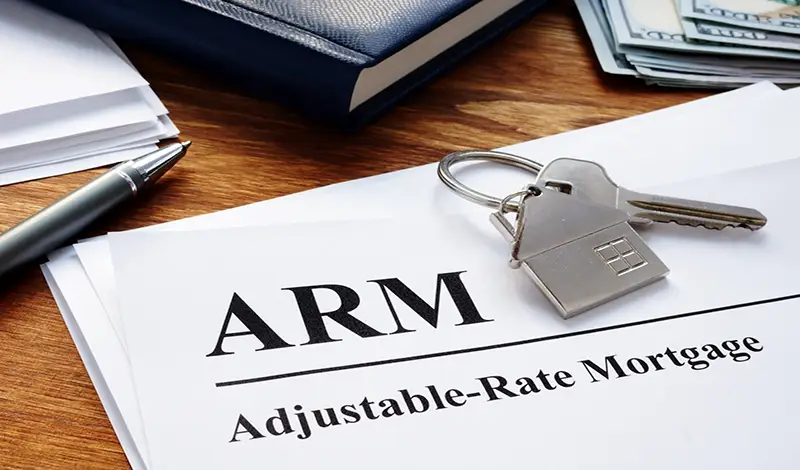When is the Right Time to Refinance an ARM?
Published on March 28, 2024 | 4 Minute read

Melanie
Ortiz Reyes
Content Specialist
Adjustable-rate mortgages (ARMs) can offer tempting initial interest rates, often lower than those of fixed-rate mortgages. However, the fluctuating nature of ARMs means that rates can rise over time, potentially leading to higher monthly payments for homeowners. To navigate these fluctuations and potentially secure better terms, many homeowners consider refinancing their ARMs. But when is the ideal time to do so?

Understanding Adjustable-Rate Mortgages (ARMs)
Before diving into the ideal timing for refinancing an ARM, it's crucial to understand how ARMs work. Unlike fixed-rate mortgages, where the interest rate remains constant throughout the loan term, ARMs have variable interest rates that can adjust periodically, typically after an initial fixed-rate period. This initial period can vary, commonly lasting for three, five, or seven years.
During the initial fixed-rate period, homeowners benefit from stable monthly payments. However, once this period ends, the interest rate adjusts periodically according to a predetermined index and margin. This adjustment can lead to fluctuations in monthly payments, potentially causing financial strain for homeowners, especially if interest rates rise significantly.

Factors Influencing the Decision to Refinance
Several factors come into play when determining the ideal time to refinance an ARM:
- Market Interest Rates - Monitoring current market interest rates is essential. Refinancing when interest rates are lower than your current rate can lead to significant savings over the remaining term of your loan.
- Remaining Time in Initial Fixed-Rate Period - Refinancing before the end of the initial fixed-rate period allows homeowners to lock in a new fixed-rate mortgage or switch to a different ARM with more favorable terms.
- Financial Goals and Circumstances - Homeowners should consider their long-term financial goals and current circumstances. Refinancing may make sense if it aligns with goals such as lowering monthly payments, reducing the total interest paid over the life of the loan, or accessing equity through a cash-out refinance.
- Credit Score and Financial Profile - Lenders evaluate credit scores and financial profiles when approving refinancing applications. Homeowners with improved credit scores or financial situations may qualify for better refinancing terms, making it an opportune time to refinance.

Signs It Might Be Time to Refinance
Several indicators suggest that it could be the right time to refinance your ARM:
- Interest Rates Are Declining - If market interest rates are trending downward, refinancing to secure a lower rate can lead to substantial savings over time.
- Approaching the End of the Initial Fixed-Rate Period - As the end of the initial fixed-rate period approaches, homeowners should start evaluating refinancing options to avoid potential payment shocks when the rate adjusts.
- Improved Credit Score or Financial Situation - A higher credit score or improved financial situation may qualify you for better refinancing terms, making it advantageous to refinance.
- Desire for Stability - Homeowners who prefer stable, predictable monthly payments may choose to refinance from an ARM to a fixed-rate mortgage, especially if they anticipate rising interest rates in the future.

The Risks of Waiting Too Long
While timing refinancing is crucial, waiting too long can pose risks:
- Missed Opportunities - Delaying refinancing in a declining interest rate environment could mean missing out on potential savings and better terms.
- Payment Shock - Waiting until after the initial fixed-rate period expires risks facing significant payment increases if interest rates rise, potentially straining your budget.
- Limited Options - Waiting until the last minute to refinance may limit your options, as lenders typically prefer to work with homeowners who are proactive and demonstrate financial stability.
Determining the ideal time to refinance an ARM involves careful consideration of various factors, including market interest rates, remaining time in the initial fixed-rate period, financial goals, and creditworthiness. While there's no one-size-fits-all answer, monitoring market conditions and staying proactive can help homeowners make informed decisions about refinancing. By staying vigilant and seizing opportunities when they arise, homeowners can potentially save money, reduce financial stress, and secure more favorable mortgage terms. Ultimately, the key is to assess your individual circumstances and consult with mortgage professionals to determine the best course of action for your financial well-being.